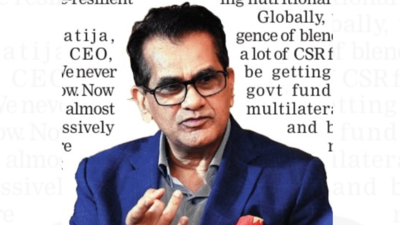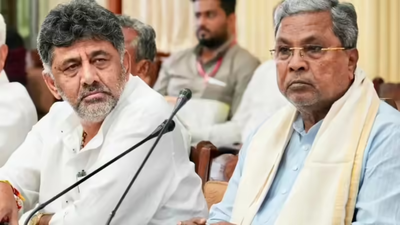Tech and policy push enables faster adoption of ESG mission | India News

India is turning environmental, social, and governance (ESG) challenges into opportunities, using technology, policy, and innovation to address energy consumption, sustainable construction, and supply-chain vulnerabilities. At a panel on ‘Tech for Good: Using Innovation to Solve Real-World Challenges,’ industry leaders described how constraints are driving new solutions.B Thiagarajan, MD, Blue Star, said: “If you bought an AC in 2000 and if you are buying one now, it now consumes only 20 percent energy. Reduction of 80 percent has been achieved.” This, he said, has made energy bills affordable and helped sustain demand.

India’s strict emission regulations framework has reshaped the power generation industry. “While only a small fraction of generators in US or UK meet the highest standards, in India, 100 percent of gensets have gone to that kind of emissions,” said Srinivasa Raghavan, executive director at Cummins.Geopolitical tensions and dependence on imported rare earth materials have encouraged domestic innovation and efforts to build more resilient supply networks. India is also progressing in electric vehicle design, said Abanti Sankaranarayanan, EVP at Mahindra Group.Tech is also enabling scale and precision. “Technology plays this role where we can either go deep to the micro level or we can scale up,” said Pornima Dore of Dorian Scale. Nidhi Bhasin of Digital Green, added, “We have used AI to ensure accurate contextual advisory reaches the smallholder farmer,” helping adopt climate-resilient practices.Atul Satija, Founder& CEO, The/Nudge Institute said: “We never had real last-mile access till now. Now it is physical connectivity to almost the last mile. We have massively scaled our road infrastructure and have digital connectivity. This is one of the largest social fabrics in the world.”
CSR funds need better sectoral distribution: Kant
It is imperative for companies to define clear outcomes, collaborate with civil society organisations and move from a ‘prescription’ to ‘purpose-led’ approach to realise CSR’s full potential, said Amitabh Kant , who served in top government positions such as CEO of Niti Aayog and G20 Sherpa, in his keynote address on Day 2 of the summit. It needs to drive deeper, systemic change through collaborations with other corporates, govt bodies and non-profit organisations, he added.More CSR investment needs better geographical and sectoral distribution. More focus is needed on India’s Eastern region and for improving nutritional standards.Globally, with emergence of blended finance, a lot of CSR funding will be getting linked to govt funding. Good multilateral funding and blended finance will offer a powerful solution.





